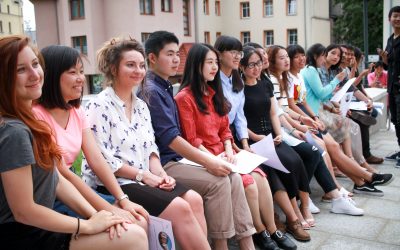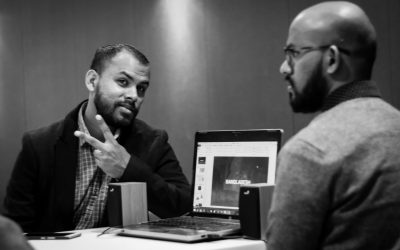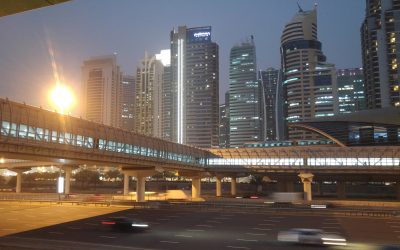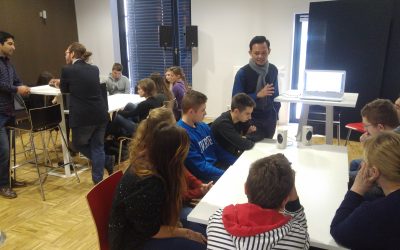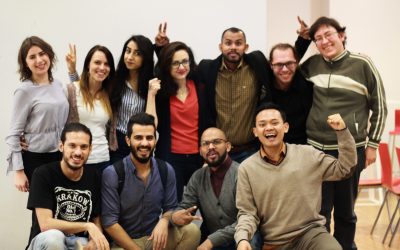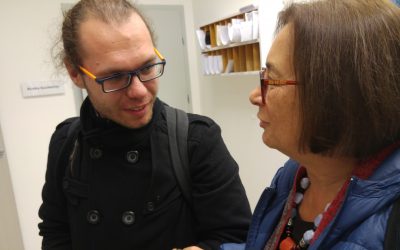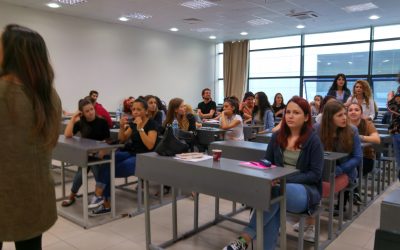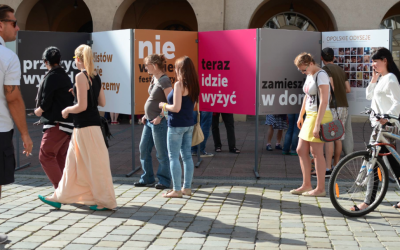Intercultural Communication – Master’s Programme in Sociology
Szkolenie biblioteczne/Library training
Zapraszamy studentów I roku licencjatu oraz I roku Intercultural Communication do udziału w szkoleniu bibliotecznym/ Students of 1st year of Intercultural Communication - we invite you to participate in library training. terminy/schedule: I licencjat - 18...
Orientation Day
You are all welcome to join us on Monday, October 2 at 12.00 in room 104 of Collegium Civitas building. We will introduce you to the institute and all the other details of your studies. You can also find the timetable for the Intercultural Communication groups (both...
Erasmus mobility for studies – study in Saint Petersburg
There are still slots for Eramus+ mobility for studies. Two information meetings are organized: On May 10, 11.00AM, Blue Hall (Aula Błękitna) in Collegium Maius; On May 18, 12.00PM, Student Culture Center; You are welcome to join and ask all possible questions. The...
Erasmus+ Mobility for Studies or for Training – Call for Applications
Dear Students, you are now invited to submit applications for Erasmus+ mobility for studies or internships to partner countries of the programme.
The Other: nationalities, religions, genders – intercultural workshops for secondary school students / Inni: narodowości, religie, płcie – kolejne warsztaty międzykulturowe z uczniami
On January 11, 2017 within our intercultural workshops we had again a pleasure to host students from the secondary school in Prudnik. The fourth meeting of this cycle was begun by Professor Marek Szczepański, who delivered a short lecture on the beginnings of...
Warsztaty międzykulturowe/Intercultural Workshops
Kolejny raz jako organizacja Hello! mieliśmy przyjemność organizować warsztaty międzykulturowe we współpracy z Instytutem Socjologii i Studenckim Kołem Naukowym Socjologów. Tym razem naszymi gośćmi byli uczniowie z Zespołu Szkół Ogólnokształcących nr 1 w Prudniku....
Experimental Design Meets Intercultural Communication
Professor Anna Bulanda of Tier University of Applied Science, the head of department of experimental designed visited us earlier today, sporting her NON VIOLENCE glasses, what we obviously loved. We were discussing the next year's edition of the FreedomBus project and...
Erasmus+ mobility for studies: call for applications for the summer semester 2016/2017
We are calling all our students willing to participate in Erasmus+ programme in the summer semester of this (2016/2017) academic year. The call is open until Friday, Oct. 21 3.00pm. You can choose from the variety of our partner universities or suggest a university of...
Classes canceled on Monday, Oct 3
Dear students, due to many reasons, one of them being the ongoing social upraising in Poland (read more), the classes are being cancelled on Monday, 3rd of October. They will be made up for. Furthermore, the Social Philosophy course, originally scheduled for Thursday,...
For Our Students
Class timetable
Academic year: 2016-2017
- autumn semester
- Intercultural Communication MA 1 (updated on Oct 26)
- summer semester
Office hours
under construction
Mobility programmes
under construction
Our so called 'social' media group
Intercultural Communication - Master's Degree in Sociology
Intercultural Communication – Master’s Programme in Sociology
The need for communication skills in the diverse society
We find ourselves living in the times of unprecedented mass flow of people from virtually all cultural and national backgrounds around the world. After the great rural-urban migration and in the era of networked but individualized societies both communication and in-depth understanding of the other emerge as highly valuable skills. Whether you want to work in a multinational company, an NGO dealing with diversity and other contemporary social problems, governmental structures of any level and scope of operation, or if you want to start your career in a creative small business enterprise, analytical and critical thinking, evidence based policy and management, understanding and coping with diversity, and last, but not least – effective communication in English – will be absolutely essential for you.
Study in Poland (in English)
We have designed a special master’s programme (MA) in sociology to meet those needs:
- We teach it in English, providing you with an opportunity to improve this fundamental skill of the 21st century.
- We are located in the very middle of Europe, in a region that on the surface looks homogeneous, but in fact it is in the heart of all processes and complexities of emigration, multinational families and ethnic minorities.
- As sociologists, we are ones who merge the humanistic with the analytical. We provide you with an empathic approach to diverse phenomena and especially to the culture of the other: be it different nationalities, ethnicities, religions, classes, genders, and organizational cultures. It is combined with a systematic, analytical, quantitative or qualitative evidence based approach. We focus on the research skills, including specialist software (SPSS, Atlas.ti) as well as evaluation research, so that our students are equipped with powerful tools to use in practice the theoretical knowledge we provide.
- We have teamed up with business entities and non-governmental and governmental bodies to make your studies even more practical and to provide you with case studies for your final research projects.
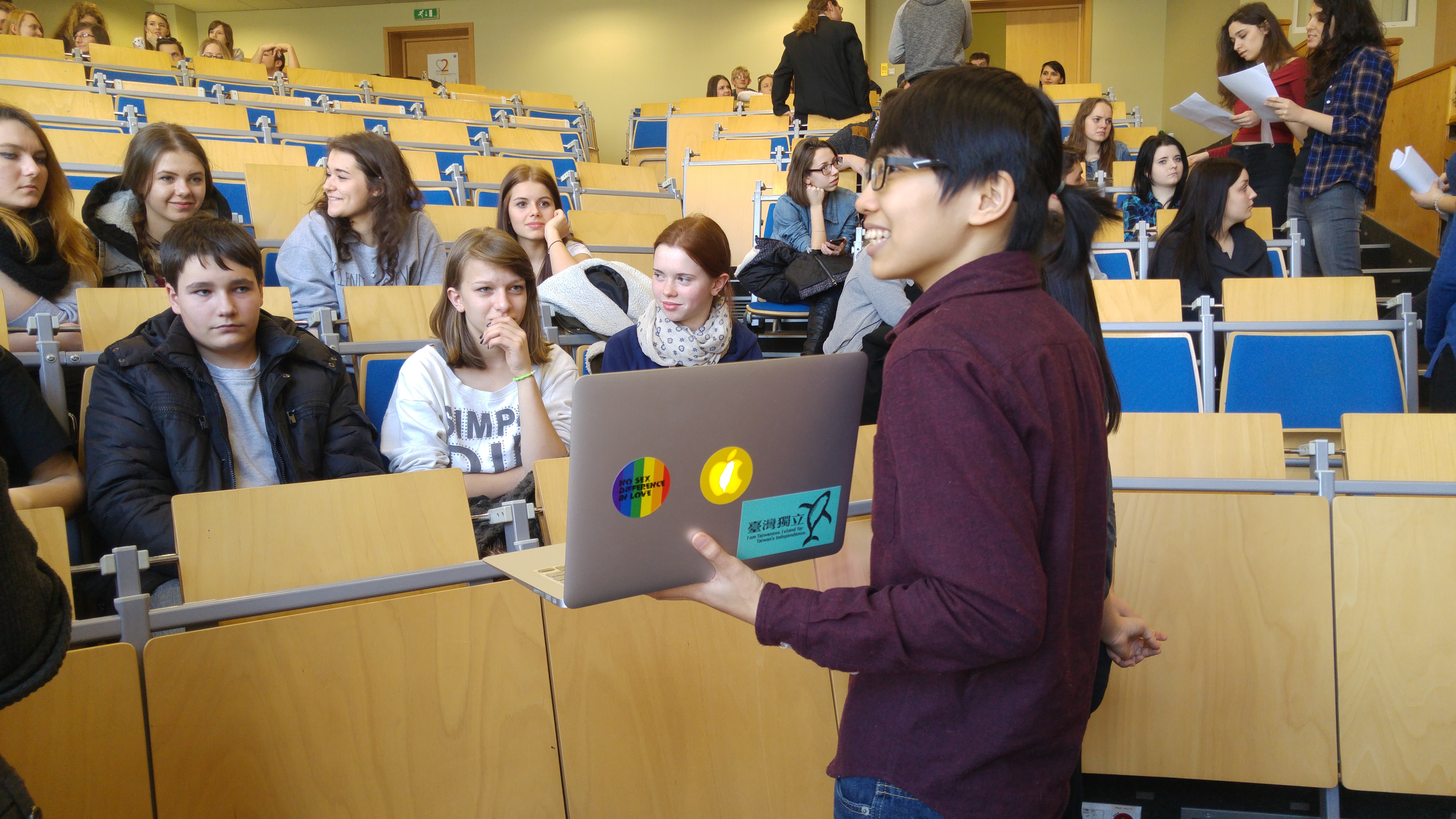
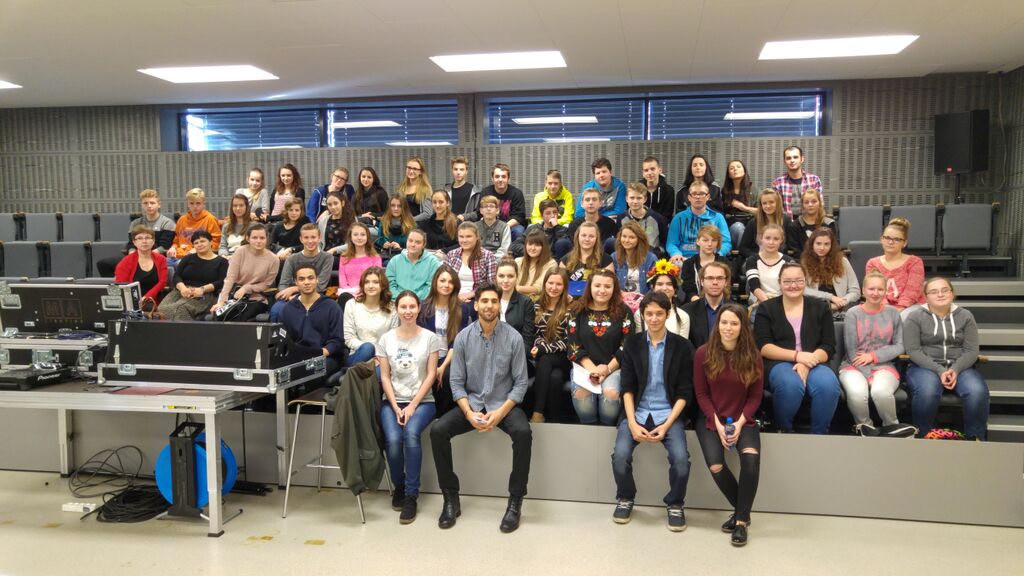
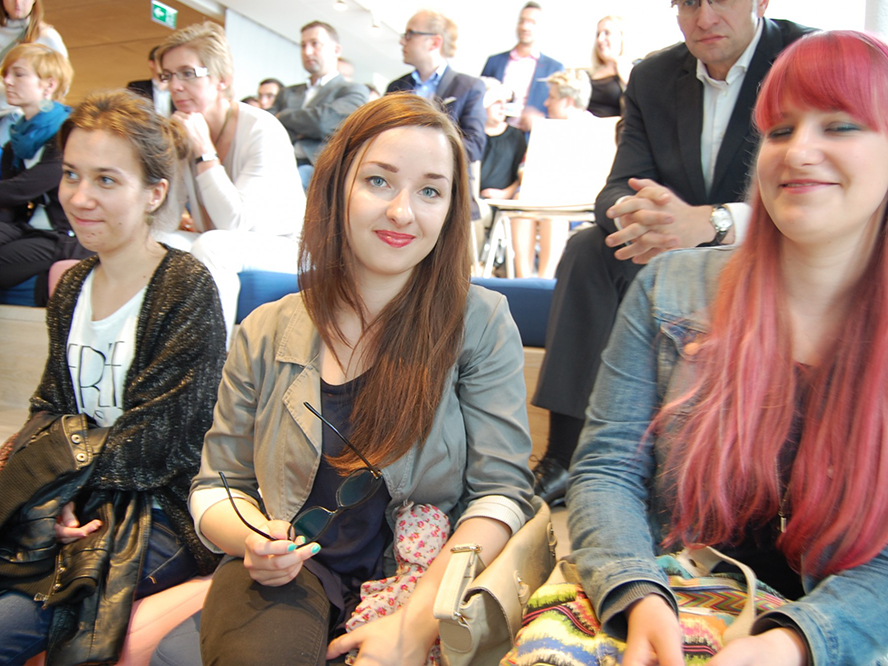
The Structure of the Programme
Semester 1
The Master’s programme is so designed that our students can get into their stride in the first semester of sociological enterprise with no problems. We start with broad subjects, i.e. methodology, sociological theory and cultural practice, and social inequalities to ensure that all students, regardless of their first-cycle study programmes, will become sociologists. We also offer a basic philosophical training for analytical skills development and an academic writing course.
Semester 2
In the second semester we introduce our students to the research methods and communication, conflict and migrations studies.
Semester 3
We start the second year (the third semester) accelerating your graduate research project. In addition to your supervising professor, another experienced researcher is appointed to assist you with your research project. We run a research analysis lab so you can have access to the research software and hardware as well as get all the necessary help to plan and carry our your own project. You can work on your project at one of our partner universities as well – even abroad. There are scholarships you can use to help you do that.
Semester 4
The last semester is all about writing your thesis – we even have an MA Presentations Lab course where with experts’ help you will be able to prepare yourself to communicate your findings effectively. During the whole study programme you will be able to attend a variety of complementary courses.
3 reasons to study Intercultural Communication
Intercultural Contact
Opole, located in the centre of Europe, with its complicated and mixed German, Polish, Bohemian and Silesian heritage on the one hand and you – a group of students coming from all over the world on the other – create a perfect environment for studying and developing intercultural communication. We also provide you with an opportunity to spend up to the half of the programme (a whole year) at one of our partner universities in Europe – with Erasmus+ scholarships available to the vast majority of students.
We strongly advise you to use scholarships also for your internships – we will provide you with our contacts around Europe so you could spend your summer holiday or even, thanks to rescheduling your semester, part of the academic year, getting some extra experience. The training scholarships are also available to you for up to 12 months after your graduation.
Experienced Researchers, Teachers and a Friendly Atmosphere
Here at the University of Opole we cherish our relationships with students. We will host no more than 15 students in a group, so you will never be anonymous to us. The city is a very friendly, lively and student oriented place, charming and quiet, with all the University buildings within walking distance. It combines characteristics of a city with an ambience of an academic town. You can meet your professors at cafés and parks as well as in libraries or just doing research in this multidimensional city at the crossroads of Europe.
We carry out research projects in Poland and Europe and other continents. Our interests range from migrations, urban sociology, economic relations, gender issues, social inequalities, and minorities to new communication technologies and digital media ecology.
Career Possibilities
There is a great demand for graduates with skills we teach: analytical and critical thinking, problem solving, project work, team work, not to mention communication and understanding of the other.
If you are into a corporate culture, you can just join one of the multinational companies in Opole. They will be more than happy to recruit you and the Polish language is no longer a must in their international environment.
You can also try your chances in whole of the EU – with our diploma, even coming from a non-EU country, you are eligible to work here. We also believe that if you return to your home country you will be a valuable employee for anyone looking for a communication and research expert who is able to think out of the box, be intellectually independent and who has immense international experience.
Contact Details
For further information please contact the programme coordinator:
Michał Wanke, PhD
E-mail: michal.wanke@uni.opole.pl
Institute of Sociology
Katowicka 89
Tel: +48 77 452 74 86
E-mail: soc@uni.opole.pl
Web: http://socjologia.whp.uni.opole.pl/intercomm/
Please direct any inquiries connected with registration to the Office for International Study Programmes: hello@uni.opole.pl
Admission requirements
The BA diploma (or equivalent) constitutes the basic admission criterion.
English language skills at B2 level confirmed by a certificate – oral interview (also online interview, e.g. Skype)
English Summer School
There is a possibility to join our intensive course in English in the summer.
Accommodation
Apartments for rent can be found in the city. At the university we can host you in one of our modern halls of residence. For further details go to: hello.uni.opole.pl/accomodation
How to enroll?
Tuition Fees
1160 EUR per year
EU citizens study free of charge.
Citizens of Poland and the Pole’s Card holders study free of charge.
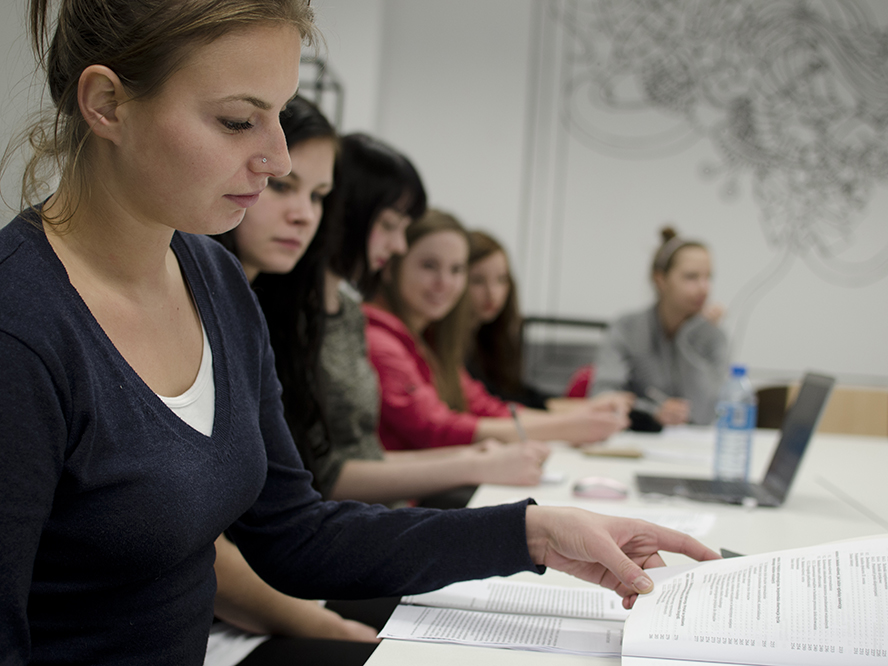
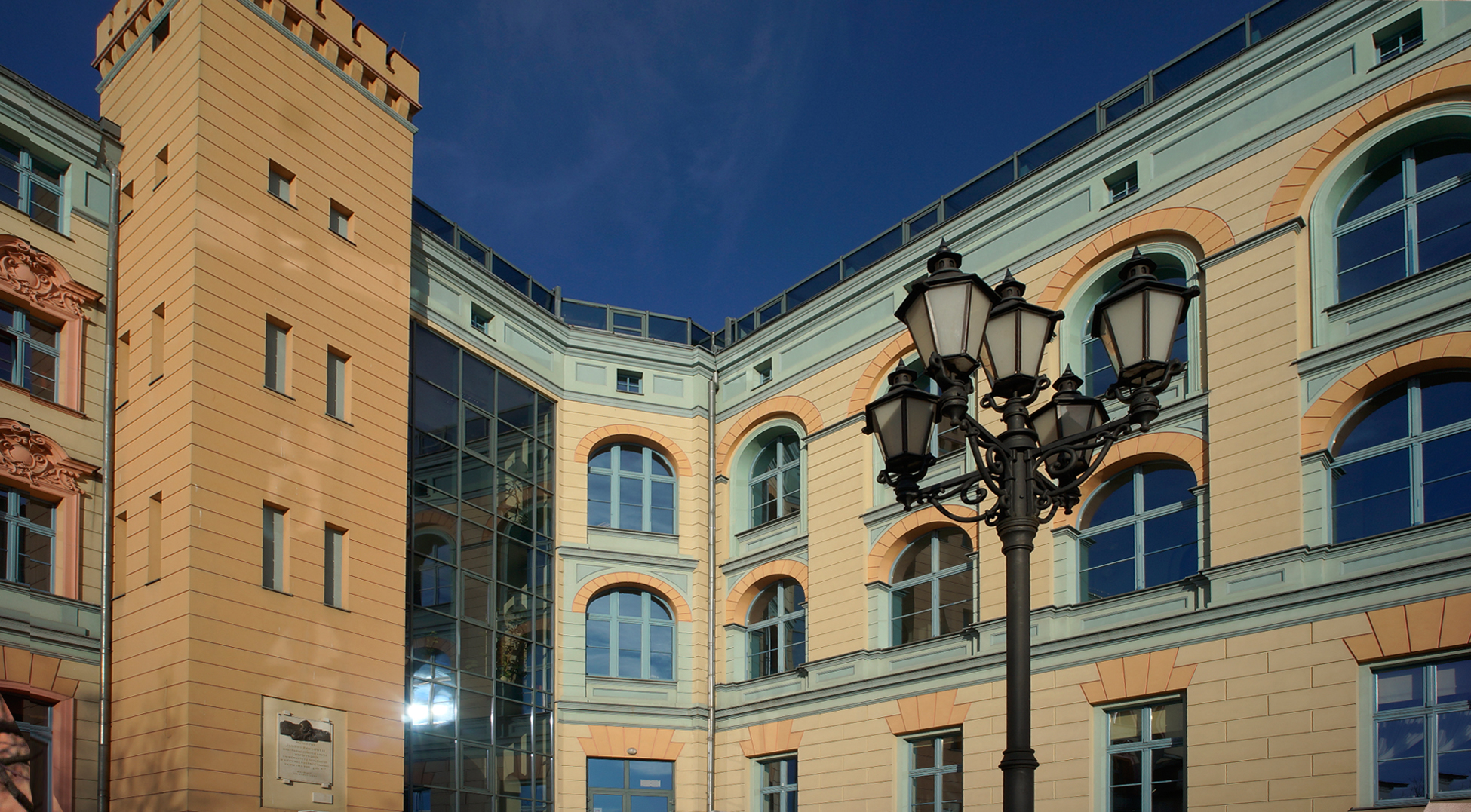
Coursework updates
Sociological Theory and Cultural Practice
Nie znaleziono żadnych wyników
Nie znaleziono szukanej strony. Proszę spróbować innej definicji wyszukiwania lub zlokalizować wpis przy użyciu nawigacji powyżej.
Social and Cultural Diversity
Nie znaleziono żadnych wyników
Nie znaleziono szukanej strony. Proszę spróbować innej definicji wyszukiwania lub zlokalizować wpis przy użyciu nawigacji powyżej.
Academic Writing for Social Scientists
Nie znaleziono żadnych wyników
Nie znaleziono szukanej strony. Proszę spróbować innej definicji wyszukiwania lub zlokalizować wpis przy użyciu nawigacji powyżej.
Integration course
Nie znaleziono żadnych wyników
Nie znaleziono szukanej strony. Proszę spróbować innej definicji wyszukiwania lub zlokalizować wpis przy użyciu nawigacji powyżej.

